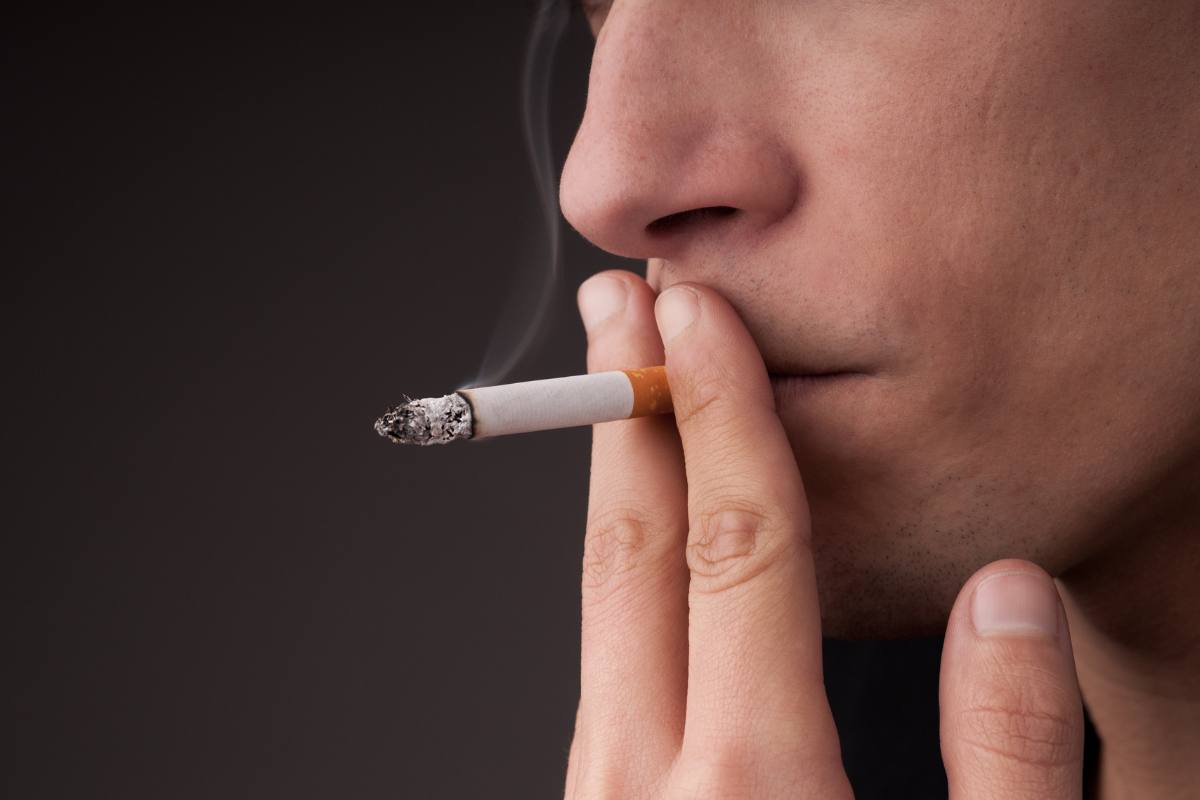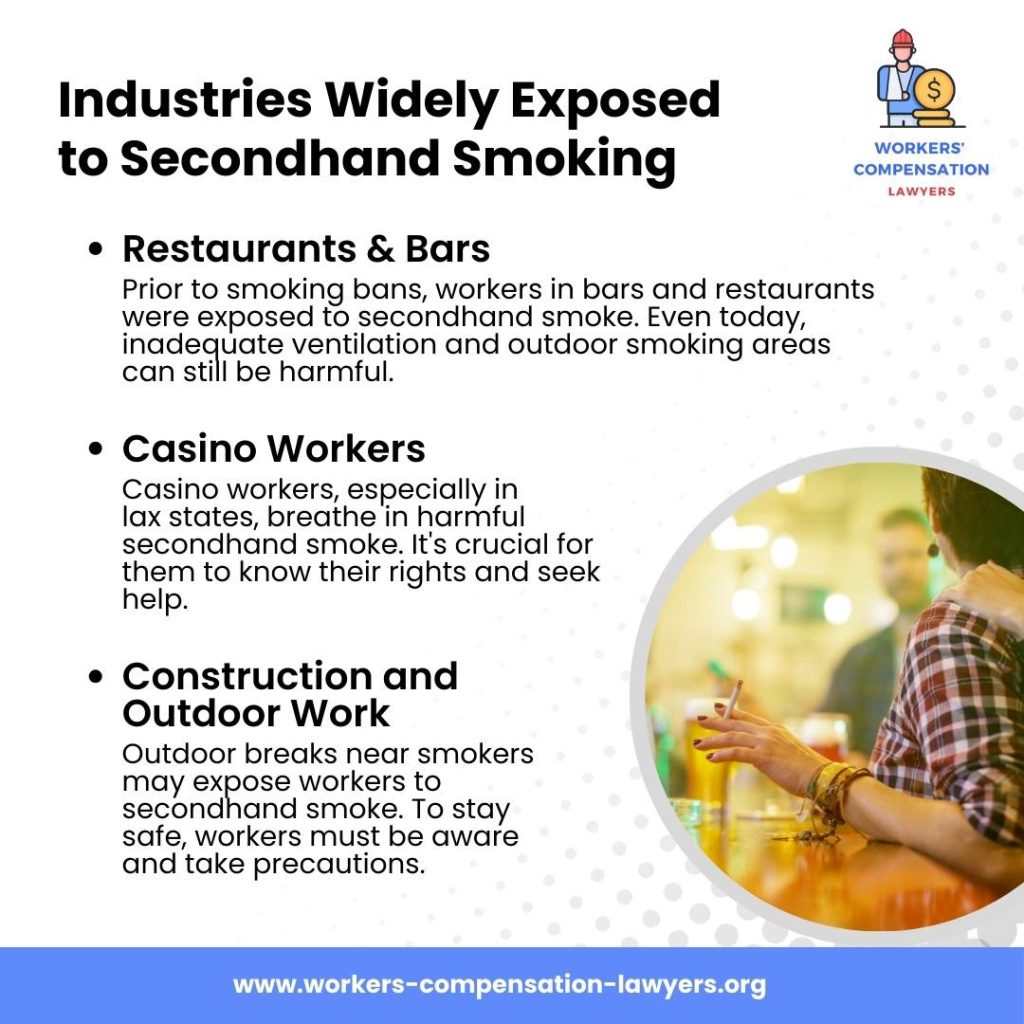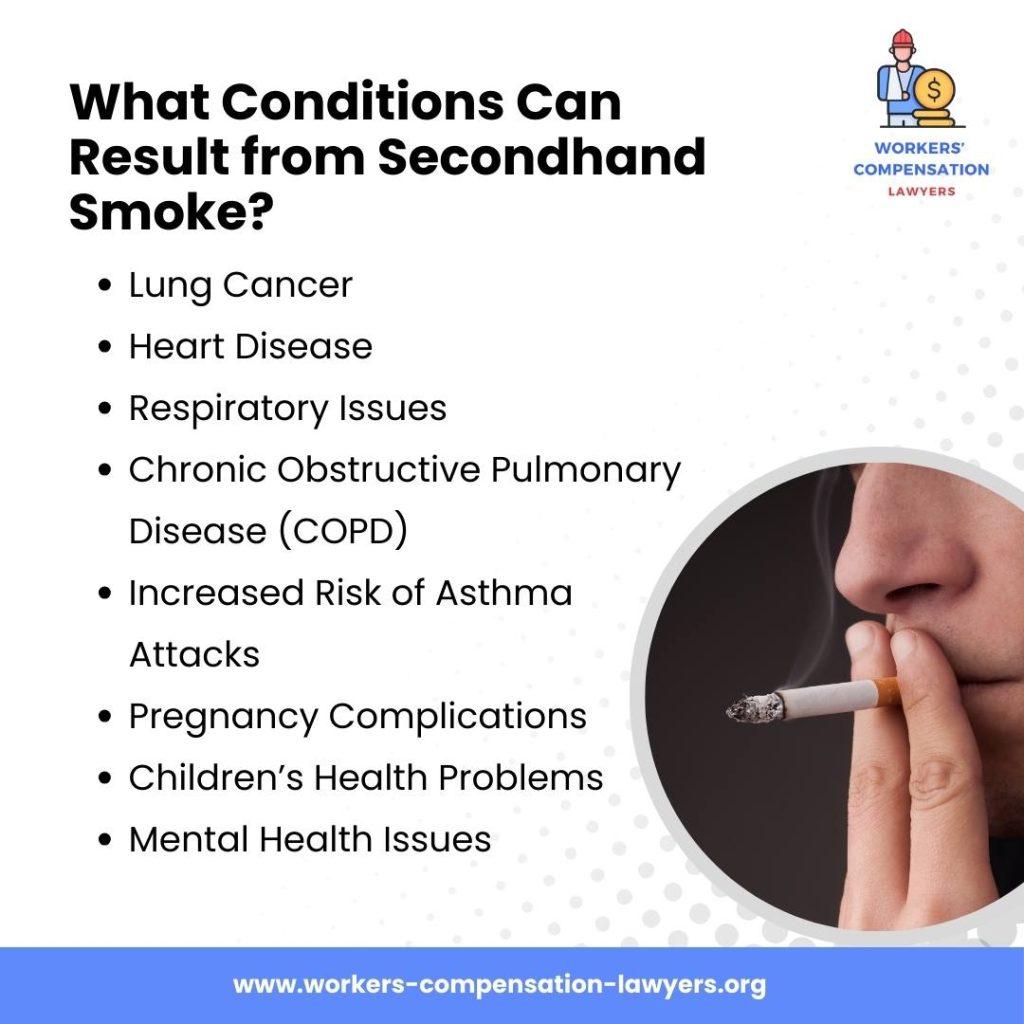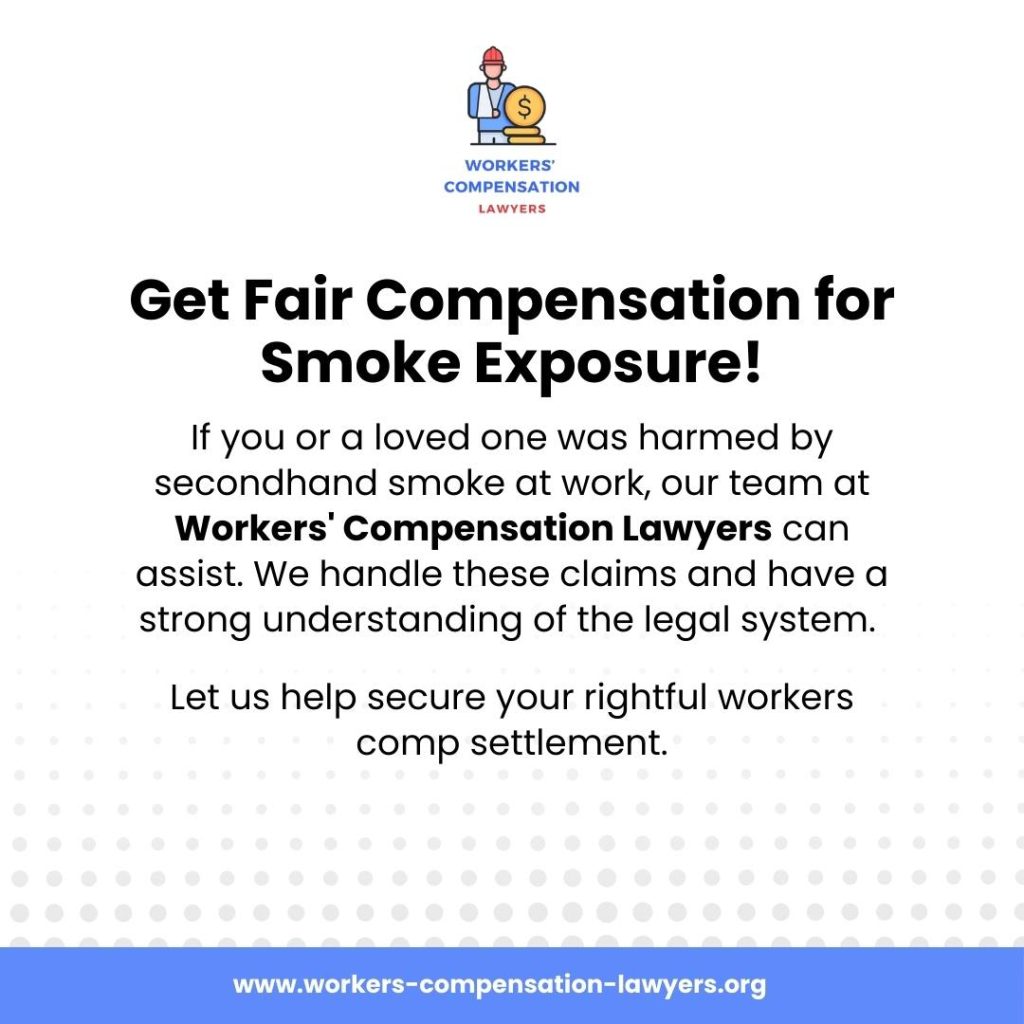
Secondhand smoke is the dangerous smoke that comes from other people's cigarettes, cigars, or pipes. Even if you don’t smoke, breathing in this smoke can cause serious health problems. Being around secondhand smoke at work can harm your health, even if you’re not the one smoking.
If you get sick from secondhand smoke at work, you can file a workers' compensation claim to get help. This blog will explain how workers' compensation works for people exposed to secondhand smoke and how you can protect your health and rights.
Secondhand smoke is the smoke that we breathe in from a person who is smoking. It is also known as passive smoke or environmental tobacco smoke. When people smoke, they exhale toxic chemicals into the air that can harm those around them.
Unfortunately, children are often exposed to secondhand smoke in their homes or public places. Breathing in this smoke can cause coughing, wheezing, and even difficulty breathing. Secondhand smoke is the cause of many health problems in children, such as asthma, allergies, and even cancer.
Even if you don't smoke, you could still be affected by secondhand smoke. If you live with someone who smokes, it's essential to ask them to smoke outside or in a designated area to protect you and your family. Parents should also avoid smoking around children, as they are more vulnerable to the harmful effects of secondhand smoke.

Many workers spend a significant amount of time at their workplace, sometimes sharing space with smokers. While some countries and states have laws against smoking in indoor workplaces, there are still many industries where workers can be exposed to secondhand smoke.
Exposure to secondhand smoke at work can cause serious health problems, especially over time. Here are a few examples of industries where workers may face secondhand smoke risks:
Before smoking bans were introduced in many areas, employees in bars and restaurants were often surrounded by secondhand smoke. Even now, outdoor smoking areas and poorly ventilated spaces can expose workers to smoke.
Casino workers, especially in states with few smoking rules, often face a lot of secondhand smoke because of the indoor setup. Many casinos allow smoking inside, which can make the air unhealthy for employees. This exposure puts them at risk for serious health issues over time, making it essential for them to understand their rights and seek help if they become ill.
Workers who take breaks in outdoor areas where others are smoking may also breathe in secondhand smoke. Sharing close spaces with smokers, even outside, can lead to health risks. Workers must know these dangers and learn to protect themselves from harmful smoke exposure.
Yes, it is possible to file a workers’ compensation claim for health problems caused by secondhand smoke exposure. Workers’ compensation is designed to help employees who suffer work-related injuries or illnesses. If your job has exposed you to secondhand smoke, and you’ve developed a related health condition, you may be entitled to compensation.
However, workers’ compensation claims involving secondhand smoke can be complex. Here’s why:
To receive compensation, you must show that your health issues were caused by exposure to secondhand smoke at work, not elsewhere. This can be difficult, especially if you have been exposed to smoke in other places (like at home or in public areas).
Medical reports are crucial for proving that your illness or injury is related to secondhand smoke. You’ll need documentation from a doctor that links your health condition directly to your exposure at work.
Workers who have been exposed to secondhand smoke for long periods are more likely to succeed in claims. The longer the exposure, the stronger the connection between the workplace environment and your illness.

Secondhand smoke is not just annoying; it can lead to serious health problems for people who breathe it in. Here are some of the significant health issues that can result from exposure to secondhand smoke:
The compensation for workers affected by secondhand smoke can vary based on the severity of their health condition and their ability to work. If a worker can no longer perform their job due to their illness, they may be eligible for benefits such as:
To learn how much compensation you can receive, check out our blog, “How Much Does Workers Comp Pay?” for more detailed information.
If you’re struggling with mental health challenges due to a work-related illness, you may be able to seek compensation for therapy, counseling, and other mental health services. To learn more, visit our blog on Mental Health and Workers' Compensation: What You Need to Know.
If you believe your health has been harmed due to secondhand smoke in the workplace, follow these steps to file a workers' compensation claim:
If you or someone you care about has faced health issues as a result of being exposed to secondhand smoke in the workplace, you may be eligible for compensation. Our experienced team at Workers' Compensation Lawyers, a leading workers' compensation law firm, specializes in handling workers' compensation Claims and Lawsuits. We have a deep understanding of the intricacies of the legal system and will guide you through the complex process.
We recognize the difficulties of dealing with health problems while fighting for your rights. From medical expenses to lost wages and emotional distress, our team is dedicated to helping you secure the average workers comp settlement that you deserve. Trust us to handle your workers compensation claims and lawsuits with compassion and expertise.

***
The material on this site is for informational purposes only and DOES NOT CONSTITUTE THE PROVIDING OF MEDICAL ADVICE, and is not intended to be a substitute for independent professional medical judgment, advice, diagnosis, or treatment. Always seek the advice of your physician or other qualified healthcare provider with any questions or concerns you may have regarding your health.

Disclaimer: Workers-Compensation-Lawyers.org is not an attorney referral service or a law firm. Workers-Compensation-Lawyers.org does not provide legal advice of any sort. We are a free matching service, and all claim reviews will be performed by a third party attorney. We do not recommend, nor do we endorse any attorneys that pay to participate in our service. No attorney-client relationship is formed when you submit the form and you are under no obligation to retain an attorney who may contact you through this service.
How it works
FAQs
About us
Contact us